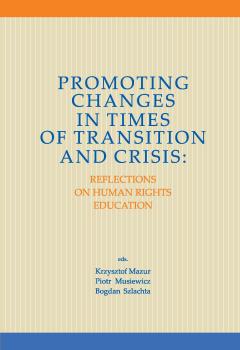The significance of Auschwitz for the Contemporary Jewish World .......... 23
Streszczenie
It is a substantial challenge to make sense of Auschwitz, or to specify with any preci-sion what its significance might be for the contemporary Jewish world, which in any case is very divided on this as on many other matters. The main problem is that Auschwitz is a place of paradoxes and contradictions: it is a symbol of historical events, it is a vast cem-etery, and it is a museum visited by great numbers of tourists – all these different things together, at the same time. Different people understand the place differently: some say that Auschwitz is about the death of God; others say that Auschwitz is about the need to believein God, or at least in some universal moral principles by which the world is governed or ought to be governed. People often say that Auschwitz is a symbol of the Holocaust, but seeing it as a symbol obscures the fact that it is a real place, where the extreme suffering and the mass murder of well over one million people really happened.So what is the significance of Auschwitz for Jews? There is no single answer. Some Jews, conscious of the incomprehensibility of this colossal catastrophe, prefer to keep si-lent. Others feel the need to mourn or to pray for the souls of those who were murdered. Many Jews see Auschwitz as symbolising Jewish victimhood in a fundamentally hostile world, and so focus their identity on Jewish losses and tragedies. They might also find comfort in the existence of a Jewish homeland in the State of Israel, and so take an opti-mistic view, stressing that the Jewish people did in fact survive Auschwitz and then went on to accomplish important new achievements in building up their own country. But the redemptive significance of Auschwitz can go beyond victimhood or the need for national-ist sentiment: in the Jewish tradition, a dedication to doing good is both an appropriate mode of memorialization as well as a source of comfort and healing.In the spirit of that last response, the true Jewish response to Auschwitz would be to focus on restoring moral decency and ethical integrity to humanity. Learning from the horrors of the evil and inhumanity of what happened at Auschwitz means taking the nec-essary steps to protect and repair the highest moral values for the future. If that message could go forth from this place, it would surely bring peace to the souls of those who were murdered at Auschwitz – through the commitment to rebuild civilised values, to promote a culture of healing through dialogue and social action with others, and to protect the spir-itual and moral potential of all human beings. Perhaps it is yet another of those paradoxes, but maybe it is through the contact with the kingdom of death that people can find the meaning of life – and the importance of Human Rights Education.
Strony
23-36
Zapowiedzi
23 lipca 2013
Serie
Kategorie
Prawa autorskie (c) 2013 Krzysztof Mazur, Piotr Musiewicz + et al.





